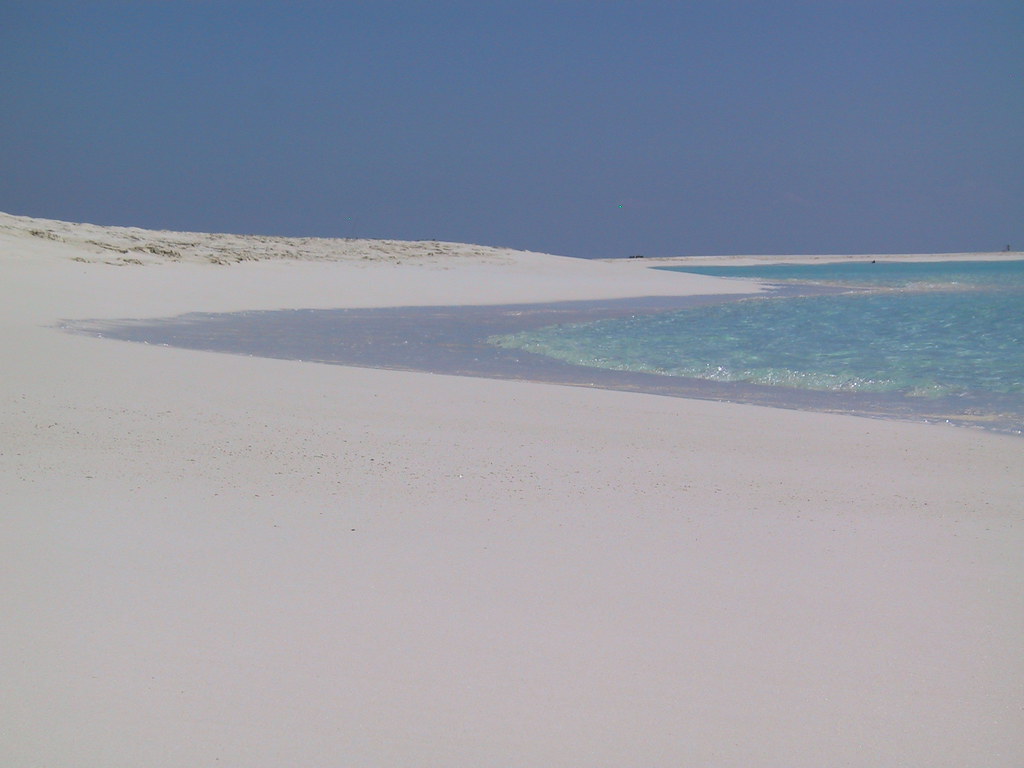
We have always been here
It was always ours
words not as signs but as powers
of suggestion
this is paradise
in the present tense
no seconds no
minutes no hours
no distance between
object and expression
what is seen or heard
felt in the same moment
by the one who sees and the one
who is seen
the one who speaks
and the hearer of the word
all creatures bound
by a kinship persisting
until appeared
the middle managers
and thus began
history
the vision thickened
the speech grew slurred
and awkward
and everything stopped

Playa paraiso: photo by Michela Chemello, 2009
Promise: photo by Maxivida, 2006
4 comments:
Once, upon receiving a significant promotion at work, a friend who was already on the same pretty exalted level I was now attaining said to me, "congratulations Curtis on clawing your way up to the middle". That was an affectionate joke, obviously, with the barb of truth in it. Your image of the "middle managers" here is acute; it describes itself without need of further adornment, although "the vision thickened" is a convincing consequence. The title and images complete this for me.
Curtis,
Well, your colleague, with his evidently well-meaning congratulation, may well have been projecting his own claws upon your (probably unusually, given the nature of that jungle) clean and discreet hands.
In one sense I suspect that this poem, in its envisioning of a sort of prelapsarian state of harmony and congruence among all the living, is engaging in a bit of idealistic and totally ahistorical retrospective hopefulness; in another sense there appears to be more than a bit of historical nostalgia; and in a third sense, I suspect those "middle managers" (very real interlopers in the real or imagined second-sense scene) may also represent certain inbuilt biological defects in the package: the "thickened vision", at any rate, may indicate (unwanted) information gathered from ischemic events (and there is at least one person who has read this poem as a staging of symptomatology such as described in "A Stroke Insight", the brain researcher Jill Taylor-Yorke's account of the experience of undergoing a massive stroke).
In any case, my guess is that all three senses probably figure in whatever work the poem does (for me, at least).
I was wondering about the last part of your comment, actually, as I was reading and re-reading the poem, and am extremely interested that this forms a part of the poem’s background. I have some familiarity with the subject.
I think there’s a valuable place in the scheme of things for a prelapsarian, idealistic and totally ahistorical retrospective hopefulness, both in a particular (well-rounded) artist’s canon and more generally. Without such sentiments, things would be unacceptably grim. Paradiso Terrestre made me think of the very fine Kinks song, God’s Children (from the Percy soundtrack lp), which shares some of the poem’s sentiments, its precise descriptions, as well as an undercurrent of quiet, justified rage. I think the metaphor of “middle managers” and the language that proceeds from there are very powerful.
Sunday in Pennsylvania was intense heat, mockingbirds, cardinals, bluejays, robins, geese, ice cream and, now, trumpet practice. It’s a challenging instrument.
Curtis,
Sunday in Pennsylvania sounds like an earthly paradise, with the occasional dissonant trumpet note as the reality factor that completes the earthly glory of the scene by keeping things from being too perfect.
Post a Comment